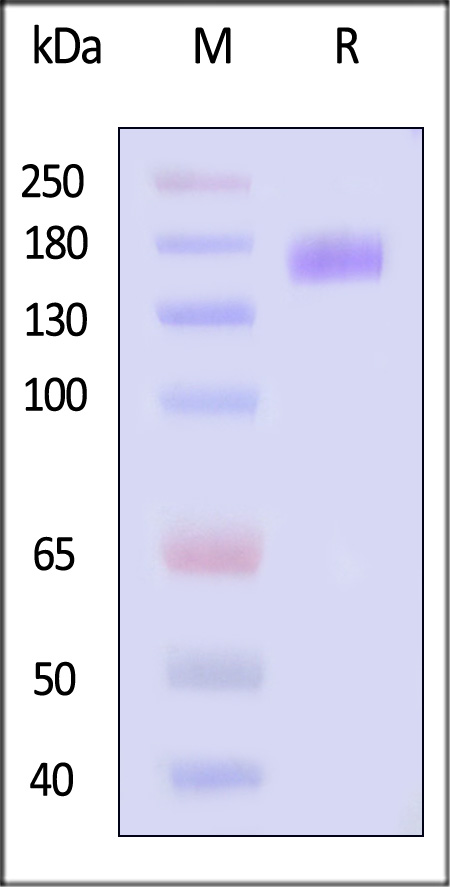
Human LIF R, Fc Tag on SDS-PAGE under reducing (R) condition. The gel was stained overnight with Coomassie Blue. The purity of the protein is greater than 95%.
Human LIF R / CD118 Protein, Fc Tag
LIR-H4252
Product group Proteins / Signaling Molecules
Product LIR-H4252 is not available
Product not available
There may be an alternative product available, please contact our technical support team.
Overview
- SupplierACRObiosystems
- Product NameHuman LIF R / CD118 Protein, Fc Tag
- Delivery Days Customer4
- CertificationResearch Use Only
- UNSPSC12352202

